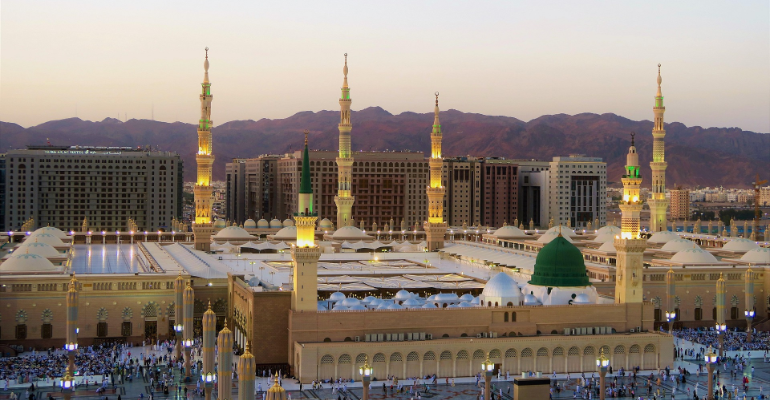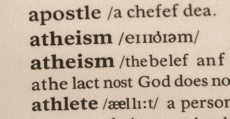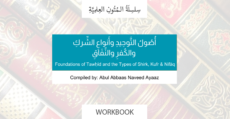In the name of Allāh, ar-Raḥmān (the most merciful), ar-Raḥīm (the bestower of mercy).
All praise is for the One who sent His Messenger with guidance and the religion of truth, to make it superior over all religions even though the disbelievers hate it. They wish to extinguish the light of Allāh with their mouths but Allāh will not allow except that His Light should be perfected even though the disbelievers hate it.
To proceed:
Allāh, the almighty, in His all encompassing mercy to mankind and His supreme wisdom sent the most noble of prophets to the most noble of nations.
{كُنتُمْ خَيْرَ أُمَّةٍ أُخْرِجَتْ لِلنَّاسِ تَأْمُرُونَ بِالْمَعْرُوفِ وَتَنْهَوْنَ عَنِ الْمُنْكَرِ وَتُؤْمِنُونَ بِاللَّهِ} آل عمران: ١١٠
{You are the best nation raised up [as an example] for mankind. You enjoin what is right and forbid what is wrong and believe in Allāh} [03:110]
This Prophet ﷺ was sent as a mercy not just to Muslims but to the whole of mankind; he was sent to guide the people from the worship of creation to the worship of the Creator; He was sent as a giver of glad tidings to those who answered his call and implemented his teachings and a Warner to mankind, warning them of an imminent punishment if they ignored his call.
{وَمَا أَرْسَلْنَاكَ إِلَّا كَافَّةً لِلنَّاسِ بَشِيرًا وَنَذِيرًا وَلَٰكِنَّ أَكْثَرَ النَّاسِ لَا يَعْلَمُونَ} سبأ: ٢٨
{We have not sent you (O Muḥammad) except as a Giver of glad tidings and a Warner to all mankind, but most men know not} [34:28]
On the authority of Jābir ibn ‘Abdullah, raḍiaAllāhu ‘anhu. that he said: “Some angels came to Prophet Muḥammad ﷺ while he was sleeping.
Some of them said: “He is sleeping,” whilst others said: “His eyes are sleeping but his heart is awake.”
Then they said: “There is a parable for this companion of yours.”
One of them said: “Then set forth a parable for him.”
One of them said: “He is sleeping.” Another said: “His eyes are sleeping but his heart is awake.”
Then they said: “His example is that of a man who built a house, offered a banquet and sent a messenger to invite the people. Whoever accepted the invitation of the messenger entered the house and ate of the banquet, and whoever did not accept the invitation of the messenger, did not enter the house nor did he eat of the banquet.”
Then the angels said: “Interpret this parable for him so that he may understand it.”
One of them said: “He is sleeping.” The others said: “His eyes are sleeping but his heart is awake.”
They then said, “The house stands for Paradise and the caller is Muhammad ; whoever obeys Muḥammad, obeys Allāh; and whoever disobeys Muḥammad, disobeys Allāh. Muḥammad separated the people (i.e., through his message, the good is distinguished from the bad, and the believers from the disbelievers.).”[1]
Indeed, Allāh has favoured this noble Prophet ﷺ with favours not bestowed to any other prophet. The one who ponders over the Qur’ān and reads it with contemplation can clearly notice how Allāh has honoured our Prophet with certain characteristics and virtues – virtues that have never been disputed.
{لَوْلَا فَضْلُ اللَّهِ عَلَيْكَ وَرَحْمَتُهُ لَهَمَّتْ طَّائِفَةٌ مِّنْهُمْ أَن يُضِلُّوكَ ۖ وَمَا يُضِلُّونَ إِلَّا أَنفُسَهُمْ وَمَا يَضُرُّونَكَ مِن شَيْءٍ ۚ وَأَنزَلَ اللَّهُ عَلَيْكَ الْكِتَابَ وَالْحِكْمَةَ وَعَلَّمَكَ مَا لَمْ تَكُن تَعْلَمُ ۚ وَكَانَ فَضْلُ اللَّهِ عَلَيْكَ عَظِيمًا} النساء: ١١٣
{If it was not for the favour of Allāh upon you, [O Muḥammad], and His mercy, a group of them would have determined to mislead you. But they do not mislead except themselves, and they will not harm you at all. And Allāh has revealed to you the Book and wisdom and has taught you that which you did not know. And ever has the favour of Allāh upon you been great} [04:113]
Before we discuss the rights of our Prophet ﷺ over his Ummah, it is befitting that we mention some of the Prophet’s unique characteristics which are a testimony to his greatness and unparalleled qualities. In an age when even the Prophets and Messengers are not safe from the tongues of the vile, it is imperative as Muslims to have full knowledge of our Prophet’s beautiful qualities to emulate and follow in his footsteps.
The Characteristics of the Prophet ﷺ
- The command of Allāh to all the Prophets and Messengers to believe and obey Muḥammad ﷺ, the Final Messenger if they ever lived to see him.
From the unique characteristics of our Prophet is that Allāh took an oath and covenant from the Prophets that if they lived to see and meet him, they would become obliged to believe, obey and follow him. Allāh, the Almighty, says:
{إِذْ أَخَذَ اللَّهُ مِيثَاقَ النَّبِيِّينَ لَمَا ءَاتَيْتُكُم مِّن كِتَابٍ وَحِكْمَةٍ ثُمَّ جَاءَكُمْ رَسُولٌ مُصَدِّقٌ لِّمَا مَعَكُمْ لُتُؤْمِنُنَّ بِهِ وَلَتَنصُرُنَّهُ * قَالَ أَأَقْرَرْتُمْ وَأَخَذْتُمْ عَلَىٰ ذَٰلِكُمْ إِصْرِي ۖ قَالُوا أَقْرَرْنَا ۚ قَالَ فَاشْهَدُوا وَأَنَا مَعَكُم مِّنَ الشَّاهِدِينَ} آل عمران: 81
{[Recall, O People of the Scripture], when Allah took the covenant of the prophets, [saying], “Whatever I give you of the Scripture and wisdom and then there comes to you a messenger confirming what is with you, you [must] believe in him and support him.” {[Allah] said, “Have you acknowledged and taken upon that My commitment?” They said, “We have acknowledged it.” He said, “Then bear witness, and I am with you among the witnesses.”} [03:81]
It was narrated that ‘Alī ibn Abī Ṭālib and Ibn ‘Abbās, raḍiaAllāhu ‘anhum, both said:
Allāh has not sent a prophet from the prophets except that he took a covenant for them to observe, that if Muḥammad ﷺ is sent in his lifetime, he would be obliged to believe and aid him. They were also ordered that they take a covenant from their people that if Muḥammad ﷺ is sent in their lifetime they would also be obliged to believe and aid him. [2]
So, he ﷺ is the supreme Imām whose obedience must be observed in all times and places. That is why he was the Imām of all the prophets and messengers when he met them in the night journey.
The People of the Book have full knowledge of his message, truthfulness and virtues, as this is found in their scriptures. In fact, the Prophet’s very name and description are mentioned in the Injīl (Gospel) and Torah.
Allāh, the Almighty, said:
{الَّذِينَ ءَاتَيْنَٰهُمُ الْكِتَٰبَ يَعْرِفُونَهُٰ كَمَا يَعْرِفُونَ أَبْنَاءَهُمْ ۚ وَإِنَّ فَرِيقًا مِّنْهُمْ لَيَكْتُمُونَ الْحَقَّ وَهُمْ يَعْلَمُونَ} البقرة: ١٤٦
{Those to whom We gave the Scripture know him as they know their own sons. But indeed, a party of them conceal the truth while they know [it]} [2:146]
Those who were given the scripture were the Jews and Christians, and they recognize the Prophet’s attributes and qualities just as they would recognize their sons and daughters.
For this reason, these two groups of people have no excuse in the sight of Allāh for not accepting the message of Islām since they were clearly commanded by the Prophet Īsa (Jesus) and Mūsa (Moses) to believe and aid his message.
{وَإِذۡ قَالَ عِيسَى ٱبۡنُ مَرۡيَمَ يَـٰبَنِيٓ إِسۡرَٰٓءِيلَ إِنِّي رَسُولُ ٱللَّهِ إِلَيۡكُم مُّصَدِّقٗا لِّمَا بَيۡنَ يَدَيَّ مِنَ ٱلتَّوۡرَىٰةِ وَمُبَشِّرَۢا بِرَسُولٖ يَأۡتِي مِنۢ بَعۡدِي ٱسۡمُهُۥٓ أَحۡمَدُۖ فَلَمَّا جَآءَهُم بِٱلۡبَيِّنَٰتِ قَالُواْ هَـٰذَا سِحۡرٞ مُّبِينٞ} الصف: ٦
{Remember when Jesus, the son of Mary, said, “O children of Israel, indeed I am the messenger of Allah to you confirming what came before me of the Torah and bringing good tidings of a messenger to come after me, whose name is Ahmad.” But when he came to them with clear evidences, they said, “This is obvious magic.”} [61:06]
Thus, the clarity of his truthfulness and sincerity was mentioned long before the earth was honoured with his footsteps. He is a Prophet who was praised and honoured by Allāh in all the previous scriptures which were abrogated by the advent of the Qur’an.
The obligation of believing in Prophet Muḥammad ﷺ is clearly illustrated by the ḥadīth narrated by Abu Hurairah, that the Prophet ﷺ said:
By Him (Allāh) in whose hand is Muḥammad’s soul, there is none from amongst the Jews and Christians who hears about me and then dies without believing in the Message with which I have been sent, except that he will be from the dwellers of the Fire. [3]
It therefore defies all logic and reasoning that some of these very people would try to belittle or degrade the Prophet ﷺ. However, what harm can they do to a Prophet whose name is proclaimed 5 times a day by a billion people in all the corners of the world?
What harm can they do to a Prophet, honoured by Allāh – the Lord of all the worlds?
What harm can a group of barking dogs do to a lofty cloud in the sky?
What harm can they do to the one whose mention, status and rank has been raised by the One who created the Heavens and earth?
{وَرَفَعْنَا لَكَ ذِكْرَكَ} الشرح: ٤
{We have raised high your mention and dignity} [94:4]
What harm can they do to the Chosen Messenger when Allaah has already stated,
{إِنَّ شَانِئَكَ هُوَ الْأَبْتَرُ} الكوثر: ٣
{Indeed your enemy (O Muḥammad) is the one cut off} [108:03]
Compare their cowardly actions with the honour and respect Muslims have for all the Prophets and Messengers. No Muslim can ascribe to Islām without first believing and honouring Prophet ‘Īsa (Jesus) and the rest of the Prophets.
In fact, our Prophet Muḥammad ﷺ informed us of his closeness to Prophet ‘Īsa (Jesus) in a Hadeeth narrated by Abu Hurairah, that the Messenger of Allāh ﷺ said:
Both in this world and in the hereafter, I am the nearest of all the people to Isa (Jesus), the son of Maryam (Mary). The prophets are paternal brothers, their mothers are different , but their religion is one (i.e. Islam). [4]
Allāh said:
{ٱلَّذِينَ يَتَّبِعُونَ ٱلرَّسُولَ ٱلنَّبِىَّ ٱلۡأُمِّىَّ ٱلَّذِى يَجِدُونَهُۥ مَكۡتُوبٗا عِندَهُمْ فِى ٱلتَّوۡرَٰةِ وَٱلۡإِنجِيلِ يَأْمُرُهُم بِٱلْمَعۡرُوفِ وَيُحَرِّمُ عَلَيۡهِمُ ٱلْمُنكَرَ وَيُحِلُّ لَهُمُ ٱلطَّيِّبَٰتِ وَيُحَرِّمُ عَلَيۡهِمُ ٱلْخَبَٰٓئِثَ وَيَضَعُ عَنْهُمْ إِصۡرَهُمْ وَٱلۡأَغۡلَٰلَ ٱلَّتِى كَانَتْ عَلَيْهِمۡ ۚ فَٱلَّذِينَ آمَنُوا بِهِۦ وَعَزَّرُوهُ وَنَصَرُوهُ وَٱتَّبَعُوا ٱلنُّورَ ٱلَّذِىٓ أُنزِلَ مَعَهُۥٓ ۚ أُولَـٰٓئِكَ هُمُ ٱلۡمُفۡلِحُونَ} الأعراف: ١٥٧
{Those who follow the Messenger, the unlettered prophet, whom they find written in what they have of the Torah and the Gospel, who enjoins upon them what is right and forbids them what is wrong and makes lawful for them the good things and prohibits for them the evil and relieves them of their burden and the shackles which were upon them. So they who have believed in him, honoured him, supported him and followed the light which was sent down with him – it is those who will be the successful} [7:157]
2 – He has the most followers amongst the Messengers.
On the authority of Abu Hurairah, may Allāh be pleased with him, that the Prophet ﷺ said:
There was no prophet amongst the prophets except that he was given miracles because of which people had belief, but what I have been given is the Divine Revelation which Allāh has revealed to me. So I hope that my followers will be more than those of any other prophet on the Day of Resurrection. [5]
3 – His generation is the best and most virtuous generation to have ever lived.
On the authority of Abu Hurairah that the messenger of Allāh ﷺ said:
I have been sent amongst the best generation of mankind, generation after generation (passed) until the generation I was sent in arrived. [6]
On the authority of Ibn Mas’ūd that the Prophet ﷺ said:
The best of people are my generation, then those who came after them, then those who came after them. [7]
4 – Allāh elevated his name to such a high station that his name is mentioned in conjunction with the name of Allāh himself.
His name is proclaimed 5 times a day when the adhān (the call to prayer) is announced. His name is mentioned in the same breath as the name of Allāh, the Lord of the worlds. No khutbah or ṣalāh is valid without the utterance of his name. In fact, a person cannot enter the fold of Islām and be called a Muslim without saying: ‘I bear witness that there is no deity worthy of worship except Allāh and I bear witness that Muḥammad is his slave and messenger.’
This is why Allāh, the Almighty, said:
{وَرَفَعْنَا لَكَ ذِكْرَكَ} الشرح: ٤
{We have raised high your mention and dignity} [94:4]
5 – Allāh informed him that all of his previous sins and latter ones are forgiven. All this while he was breathing and walking on the earth.
{إِنَّا فَتَحْنَا لَكَ فَتْحًا مُّبِينًا * لِّيَغْفِرَ لَكَ اللَّهُ مَا تَقَدَّمَ مِن ذَنبِكَ وَمَا تَأَخَّرَ وَيُتِمَّ نِعْمَتَهُ عَلَيْكَ وَيَهْدِيَكَ صِرَاطًا مُّسْتَقِيمًا} الفتح: ١-٢
{Indeed, We have given you, [O Muḥammad], a clear conquest. That Allah may forgive for you what preceded of your sin and what will follow and complete His favour upon you and guide you to a straight path} [48:1-2]
6 – Allāh swore and took an oath by his life and existence.
{لَعَمْرُكَ إِنَّهُمْ لَفِي سَكْرَتِهِمْ يَعْمَهُونَ} الحجر: ٧٢
{By your life, [O Muḥammad], indeed they were, in their intoxication, wandering blindly} [15:72]
The fact that Allāh took an oath by his life is a clear indication of the honour and respect this noble Prophet has in the sight of Allāh. Furthermore, Allāh has not taken an oath on the life of any other human being.[8]
7 – Allāh honoured him by calling him by his most beloved of names and attributes.
In several places in the Qur’ān, Allāh calls His Prophet by; “O Prophet” and “O Messenger”, never once did Allāh call him by his name. This characteristic is not found in any other prophet. We find in the Qur’ān that Allāh addresses the other noble prophets by their names; “O Ādam”, “O ‘Īsa”, “O Mūsa”, etc.
8 – Allāh prohibited addressing him by his name and commanded the companions to address him by; O Messenger of Allāh or O Prophet of Allāh.
Allāh says:
{لَا تَجْعَلُوا دُعَاءَ الرَّسُولِ بَيْنَكُمْ كَدُعَاءِ بَعْضِكُمْ بَعْضًا ۚ قَدْ يَعْلَمُ اللَّهُ الَّذِينَ يَتَسَلَّلُونَ مِنكُمْ لِوَاذًا ۚ فَلْيَحْذَرِ الَّذِينَ يُخَالِفُونَ عَنْ أَمْرِهِ أَن تُصِيبَهُمْ فِتْنَةٌ أَوْ يُصِيبَهُمْ عَذَابٌ أَلِيمٌ} النور: ٦٣
{Do not make [your] calling of the Messenger among yourselves as the call of one of you to another. Already Allah knows those of you who slip away, concealed by others. So let those beware who dissent from the Prophet’s order, lest fitnah strike them or a painful punishment} [24:63]
Ibn Abbās, Mujāhid and Sa’īd ibn Jubayr all said while commenting on this āyah: “They used to say, O Muḥammad, O Abul Qāsim, so Allāh prohibited this in honour and respect for His beloved Prophet ﷺ, he commanded them to say “O Prophet of Allāh”, “O Messenger of Allāh”.”[9]
9 – Allāh prohibited this Ummah from raising their voices above the voice of the Messenger of Allāh and not to speak aloud to him.
Doing this will cause the righteous actions of the perpetrator to be rendered fruitless. Allāh, the almighty, said:
{يَا أَيُّهَا الَّذِينَ آمَنُوا لَا تَرْفَعُوا أَصْوَاتَكُمْ فَوْقَ صَوْتِ النَّبِيِّ وَلَا تَجْهَرُوا لَهُ بِالْقَوْلِ كَجَهْرِ بَعْضِكُمْ لِبَعْضٍ أَن تَحْبَطَ أَعْمَالُكُمْ وَأَنتُمْ لَا تَشْعُرُونَ * إِنَّ الَّذِينَ يَغُضُّونَ أَصْوَاتَهُمْ عِندَ رَسُولِ اللَّهِ أُولَٰئِكَ الَّذِينَ امْتَحَنَ اللَّهُ قُلُوبَهُمْ لِلتَّقْوَىٰ ۚ لَهُم مَّغْفِرَةٌ وَأَجْرٌ عَظِيمٌ} الحجرات: ١-٣
{O you who believe! Raise not your voices above the voice of the Prophet, nor speak aloud to him in talk as you speak aloud to one another, lest your deeds may be rendered fruitless while you perceive not. Verily! Those who lower their voices in the presence of Allah’s Messenger, they are the ones whose hearts Allāh has tested for piety. For them is forgiveness and a great reward} [49:2-3]
On the authority of Anas ibn Mālik that the Prophet ﷺ missed Thābit ibn Qays [from his sittings], so a man said: “O Messenger of Allāh I will bring you news about him.” The man came to Thābit and found him sitting in his house with his head lowered, he said: “what is the problem?” He (Thabit) replied: “Evil, I used to raise my voice over the voice of the Prophet’s so my actions have been nullified and I am from the people of the fire.” After the Prophet was informed of what he said, he said:
Go to him and tell him that he is not from the people of the fire, rather he is from the people of Paradise.[10]
10 – From his unique characteristics is that Allāh bestowed upon him one of the greatest miracles, the Qur’ān. A book that has never been altered or tampered with from the time it was revealed.
This revealed book is a miracle from all angles; Its eloquence and brilliance has never been matched, nor will it ever be matched. Its powerful words are a reminder for him who has a heart and contemplates its meanings. The Qur’ān is a cure for all sicknesses, outwardly and inwardly. Whomsoever believes and follows its teachings will be saved and guided, and whomsoever abandons it will surely perish and be destroyed.
The Prophet ﷺ said:
There was no prophet amongst the prophets except that he was given miracles because of which people had belief, but what I have been given is the Divine Revelation which Allāh has revealed to me. So I hope that my followers will be more than those of any other prophet on the Day of Resurrection. [11]
Conclusion
These are but a few of the many unique and beautiful characteristics bestowed upon our Prophet ﷺ.
I ask Allāh, the most Beneficent and Merciful, to make us of those who adhere to the Sunnah of our Prophet, and to make the Prophet Muhammad ﷺ intercede on our behalf on a day when the excuses of the disbelievers and those who try to belittle our Prophet will be of no profit; a day when neither wealth nor sons will avail them.
All Praise belongs to Allāh, may His peace and blessings be upon our final Prophet, his family, his companions and all those who follow his guidance.
This work was completed on Sunday the 26th of Jumad Al-Awwal 1434 Corresponding to the 7th of April 2013.
Abu Salma Muhammad Ali Aideed Hassan
Al-Madeenah Al-Nabawiyyah
The Prophet’s City
Footnotes
[1] Ṣaḥīḥ al-Bukhārī; Ḥadīth no.385.
[2] Tafsīr Ibn Kathīr 1/378.
[3] Ṣaḥīḥ Muslim, The Book of Faith – Vol 1, Chapter 24.
[4][4] Ṣaḥīḥ al-Bukhārī – Hadeeth no.652
[5] Ṣaḥīḥ al-Bukhārī – Ḥadīth no.379.
[6] Ṣaḥīḥ al-Bukhari, see Fatḥ al-Bari 7/201-202 and Ṣaḥīḥ Muslim 1/104
[7] Ṣaḥīḥ al-Bukhārī – Ḥadīth no.2530
[8] Refer to Bidāyat as-Su’ūl, by Allāmah al-‘Izz ‘Abdulazīz ibn ‘AbdusSalam – Page 37
[9] Refer to Tafsīr Ibn Kathīr 3/306
[10] Ṣaḥīḥ Ibn Ḥibān – Ḥadīth no.7275
[11] Ṣaḥīḥ al-Bukhārī – Ḥadīth no.379




